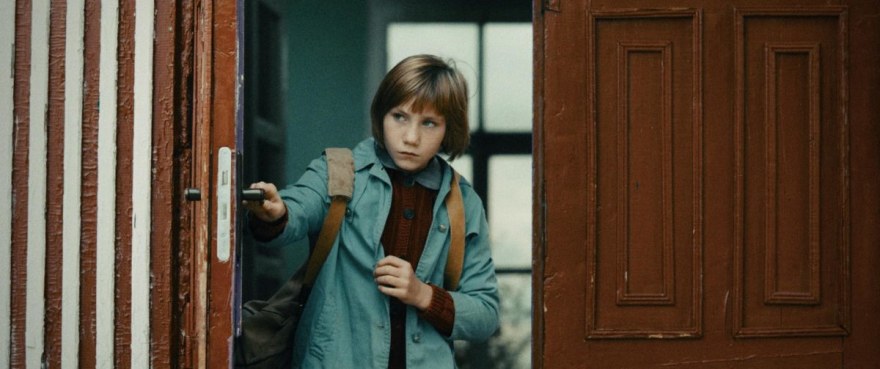Dinner with Lake of Happiness
An interview with Aliaksei Paluyan, director of Lake of Happiness
Is the character of Jasja based on a real girl?
The character of Jasja is based on the story of my father. He was 7 years old when his mother died and my grandfather decided to send him to an orphanage. This traumatic experience in his childhood has always been a taboo topic for my father. Although he never spoke to me about it, I know that this is a topic he’s struggled with until today. That left me with a burning question: why would parents give their own children away? As a filmmaker, I tried to find a cinematic angle of view at this personal story. During my research, a good friend of mine made me a present, a new book called “Lake of Joy” by the famous Belarusian writer Viktor Martinovich. This was a key signal for me. On that same day I wrote a letter to this writer and told him I was working on a very similar story at the moment and that I wanted to meet with him. I told him at our meeting that I wanted to use only one special episode of his novel, that I wanted to dissemble it, find its essence and rebuild a new story based on my father’s experiences. Viktor Martinovich believed in me. He gave me his approval and the filming rights to his novel. For my screenplay I created a fictional character named Jasja. She comes from a small Belarusian village, like my father. It is very important for me that even though Jasja is in fact imaginary, her role in my film was played by a real orphan girl (Nastyia Plyatz), who is actually here at the festival!
Would you say it is common practice – I assume amongst families facing financial difficulties – to put their child in an orphanage when one parent dies?
30-40 years ago it was actually a common practice in Belarus. In those times it was really a question of survival. Today, a lot of widows and widowers try to raise their children on their own. But there are still state orphanages to ensure proper living and education for children in need.
Can you tell us a bit more about the filming location?
We shot the film on location in very remote and authentic villages in West Belarus, where there was sometimes even no running water. We actually shot the film in four different villages. One of them was Lybeiki, my grandmother’s birthplace. We used an original “Hata”, a traditional wood house as the setting for Jasja’s home. The orphanage was shot in an old school building from the 1950s that was closed down three years ago. It had no central heating and we had to use wood stoves to keep cast and crew warm during filming in fall. To create the illusion of being in the 1990s, our art director placed beds from a local worker dormitory and papered the walls with original wallpaper from that time. I worked with around 40 children from two village schools on the set to bring the orphanage to life. The children wouldn’t want to stop filming. That was maybe the most amazing part of the shooting for me.
How did you cast Jasja?
I started to look for a girl that could fit Jasja’s role directly at the beginning of the screenplay writing. My assistant and I were in a lot of orphanages in Belarus, and we found our Jasja only two months before the start of the shooting. It was on the last day of casting in an SOS village in Mogilev city. Nastja did not stand out because she was in the forefront, she was not an upstart, but on the contrary she was in the background and observing what was happening, having the powerful expression of an adult woman. That’s what I was looking for. She rested in herself, a child with freckles and blond hair close to red color. I have never been so confident in the choice of an actor at a casting as on that day.
Would you say that the short film format has given you any particular freedom?
Yes and no. On the one hand, when you work with a short film format, you are free to choose the themes and forms for your idea. On the other hand, you have to reveal your idea of the story in a very limited timeframe, which makes it sometimes quite a challenge.
Lake of Happiness is being shown in International Competition I6.








